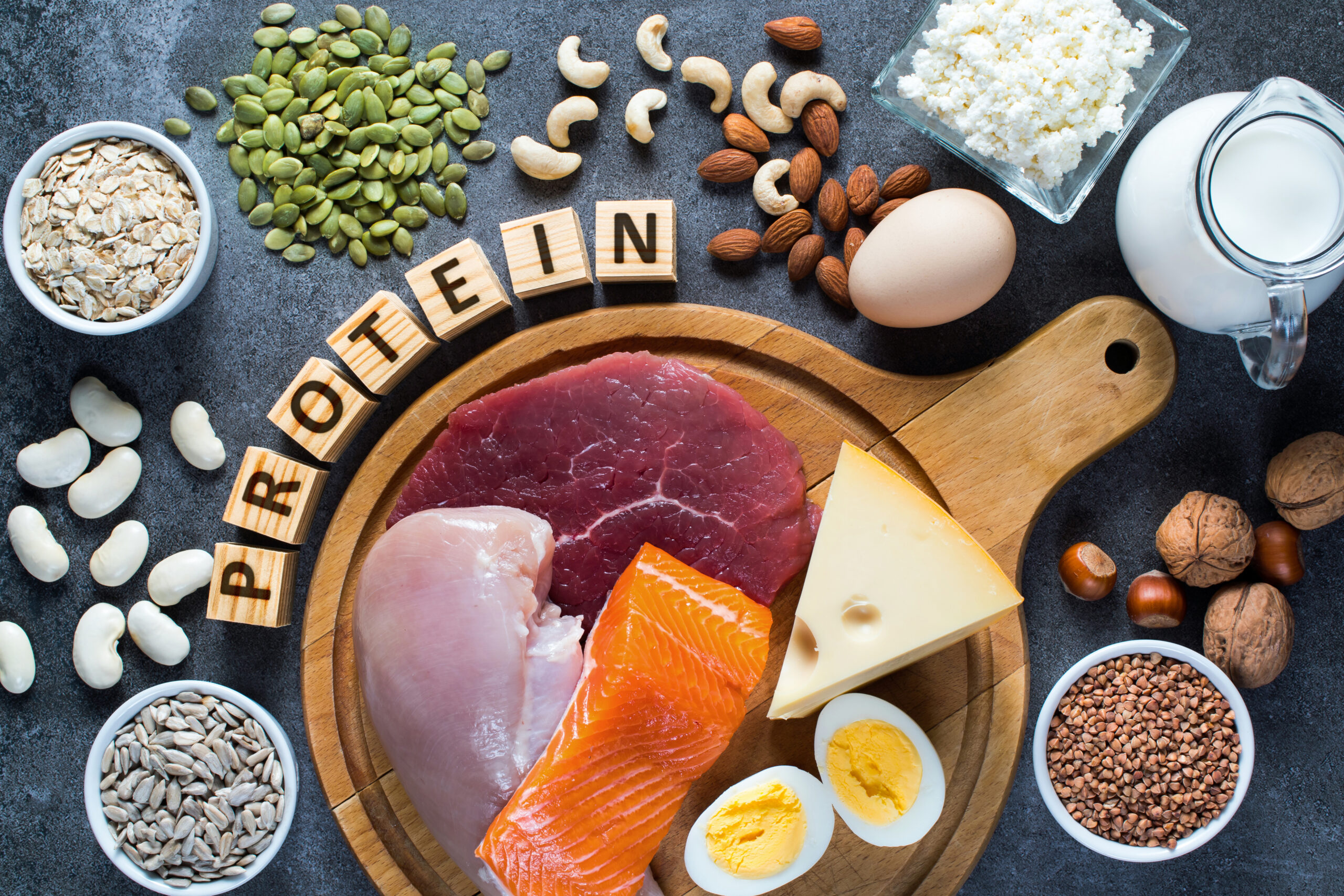By Monika Jacobson, RDN
Director of Lifestyle Health
One of the most frequent questions I hear from patients is, “How much protein do I need?” Many people have heard conflicting and confusing recommendations related to protein needs. And the topic is extra “buzzy” right now in part due to recent news headlines stating excess protein is bad for heart health, popular documentaries hyper-focused on vegan diets, and nutrition “experts” proclaiming all sorts of answers to this question with varying levels of daily protein recommendations.
My take? The answer to this question is highly individualized and cannot possibly be summed into a blanketed number.
Let’s take a closer look at protein and why we need it. Dietary protein is a key macronutrient in the human diet. Protein helps us feel satiated (full), helps to repair and build muscle tissue and is important in cellular function throughout the body. Concentrated sources of protein can be found in animal sources such as the muscle of an animal (chicken breast, salmon filet, steak and even eggs); in the milk of an animal (milk, yogurt, cheese); and in plant foods (beans, legumes, grains and even some vegetables).
Is animal or plant protein better? That’s an even bigger topic, but certainly eating less animal protein means less saturated fat which we know is good for LDL cholesterol levels.
Protein needs are highly individualized. Age, body size, physical activity and kidney function should all be considered when calculating someone’s unique protein goals. The body can only use a certain amount of protein at a time for muscle synthesis, so the rest is often just extra calories (this is where excessive protein may be less supportive of heart health). Most healthy adults need approximately 0.8-1.2 grams of protein per kilogram of body weight. This translates to around 20-30 grams of protein per meal. (For example, a 4 oz. chicken breast has about 28 grams of protein.)
Someone with a goal of gaining lean muscle mass needs more than someone simply trying to maintain health and body composition. Can someone eat extra protein and gain more muscle? Yes, but this must be done in combination with higher calories overall and a weight training program.
Here are some examples of foods that are naturally low in saturated fat and high in protein (not an exhaustive list).
- 4 oz. turkey or chicken (28 grams)
- 4 oz. salmon or tuna (26 grams)
- 4 oz. lean beef (28 grams)
- ½ cup lentils (12 grams)
- 1 string cheese (6 grams)
- 3.5 oz. firm tofu (17 grams)
- ½ cup black beans (9 grams)
- ½ cup shelled edamame (9 grams)
- 1 cup plain Greek yogurt (20 grams)
Ten tips to increase protein:
- Use bone broth in soups, stir-fries or when cooking whole grains like quinoa or rice
- Add Greek yogurt to smoothies or eat with berries and nuts
- Sprinkle beans/shelled edamame on salads
- Enjoy cottage cheese with some tomato slices or peaches
- Try hummus or bean dip with veggies/crackers
- Add a fried or poached egg to avocado toast
- Add cooked lentils to a salad, soup or stir-fry
- Add black beans to an egg scramble
- Snack on smoked salmon with rice crackers or cucumber slices
- Keep turkey, salmon or beef jerky on hand for a portable snack
Photo credit: iStock
